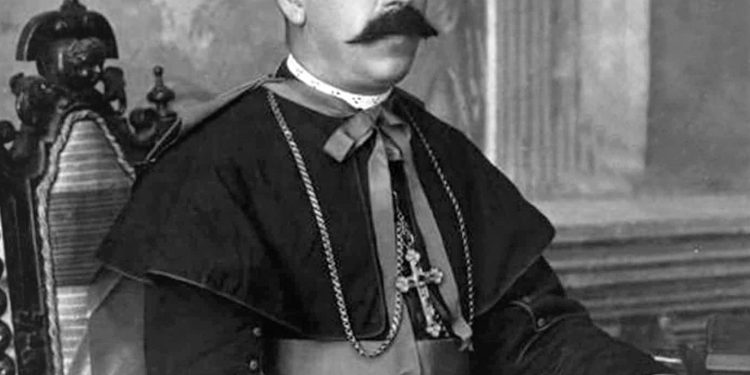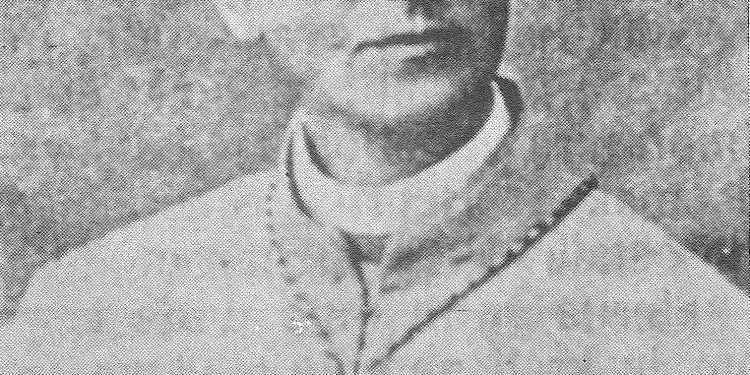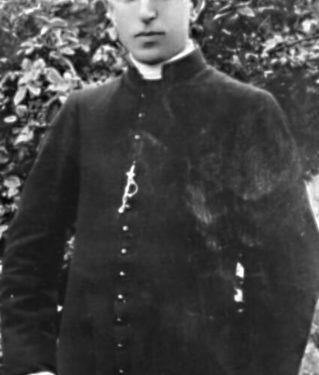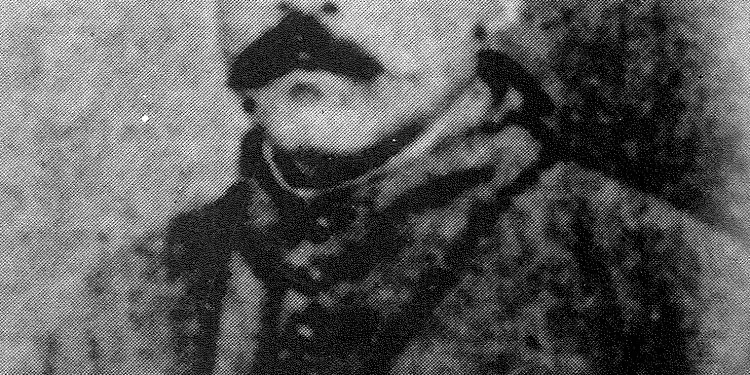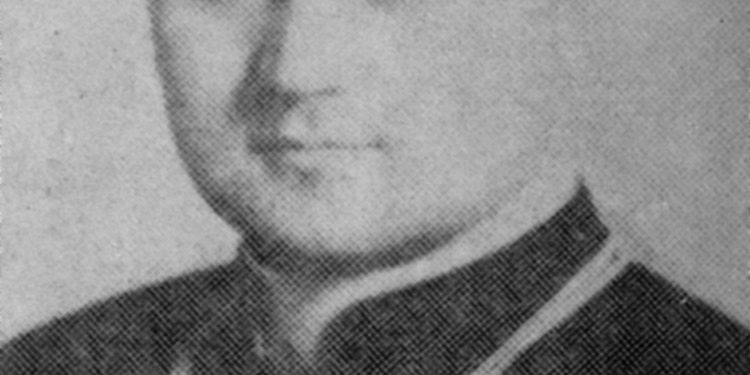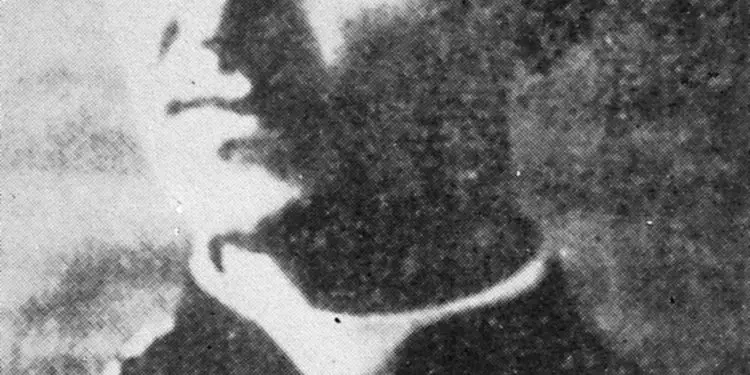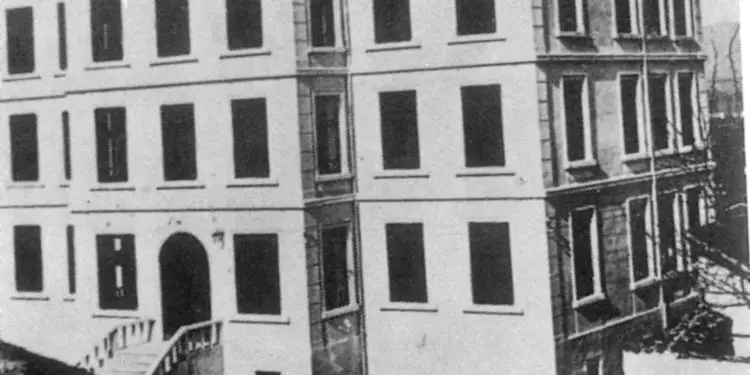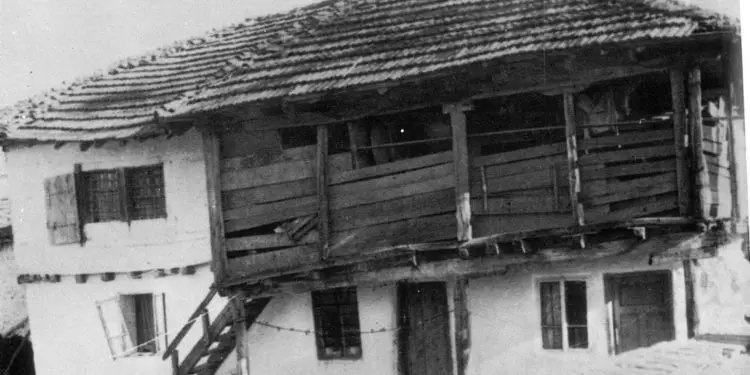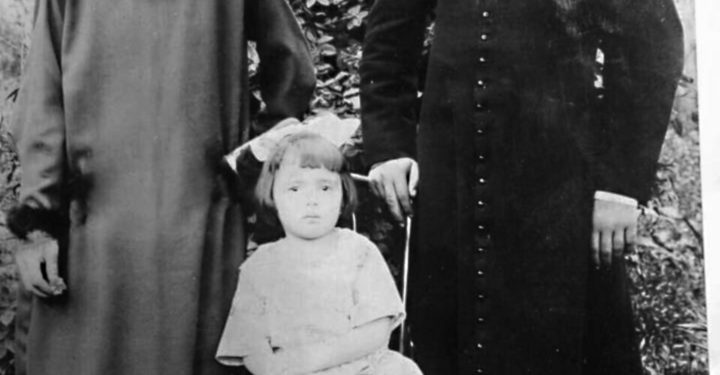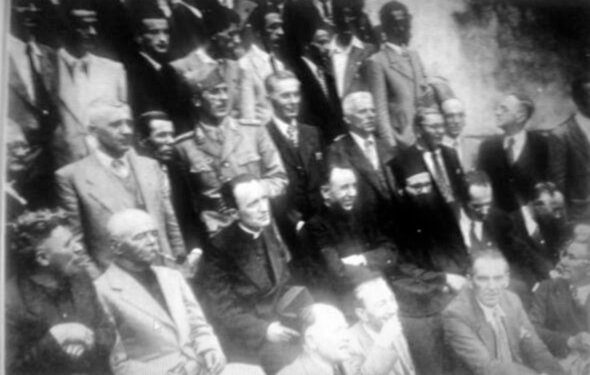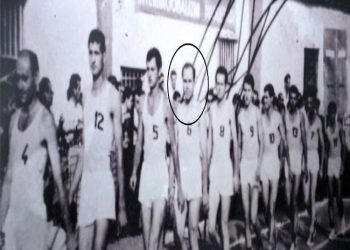NIKOLLË LOKA
ALFDRED DUKA
NIKOLIN KURTI
The third part
WHY DOES THE POLITICAL ACCUSATION OF COLLABORATION NOT STAND?
-Continuing the tradition of native Catholic clergy –
Continues from last issue
Memorie.al/The official attitude towards the Catholic Church and the Parish Priest of Tirana changes depending on the conditions and circumstances that were constantly changing. It is not surprising that a few days after participating in an important state ceremony, the Church found itself excluded from its legal rights.
Examining all the circumstances and actors is very complex, but one thing is certain: the Italian and German occupation officials did not fully accept the Albanian Catholic Clergy and continued to show distrust towards it. Thus, at Christmas 1941, the direct broadcast of the Great Mass of December 24, 1941 was neglected and prevented by the authorities, as was the usual practice, with the unconvincing pretext: “We regret to inform you that the technical engineer of this station, can’t make the connection for tomorrow night, because the time is too short…” !
Solidarity among Italian clergy was a normal practice, but in the context of religious activities, that solidarity should not be emphasized to the detriment of cooperation and coexistence. It was normal for Italian priests and nuns to stay together in their free time, maybe even live in the same place, but without being separated from the Albanian clergy.
The Italian nuns who lived in the Parish Church where Albanians served, had asked to go to the Jesuit Church, where Italian missionaries served. They had prayed to the archbishop several times, without ever discussing the problem with the vicar. Arghipeshkv Prenushi, on the basis of his competences, had approved their request and had immediately informed parish priest Kurti, who was hearing it for the first time as a problem.
The Parish Office of Tirana has the honor to announce the following:
The Curia, Archbishop of Durrës, with his letter Pr. No. 74/44 dated 9.III.1944 writes: “Taking into account the desire, the Parish of the Congregation of Our Lady in Tirana, presented to us several times orally and with writing, we discussed the issue strongly with the venerable Dom Shtjefën Kurtin, Parish Priest, we got his opinion; we noticed that the majority of the priests are on one side and the minority of the priests on the other in the Parish Office of Tirana, not another for each other, such a very special action for this Congregation, we saw it with a way to to the Congregation of Our Lady, the permission to move from the Parish Office of Tirana and, to pass and squat near the Eten Jesuit buildings in Tirana, to be put under the direction and guidance of their regulars, yes that this mind, as the Parish of the Congregation assured us, are ready to voluntarily accept this burden, for the happiness of God and Our Lady and for the benefit of many souls.
Dom Shtjefni had collaborated with Italian or Albanian state officials during the years of occupation as a parish priest, Dean of the Church, or as its representative near state bodies and never as an individual showing personal preferences. In this capacity, he becomes part of dangerous mediation missions, with the aim of stopping as much as possible the shedding of Albanian blood. From the letter he sends to the archbishop, we understand that Dom Shtjefni has no sympathy for the partisan movement, however he agrees to undertake a mediating mission with them, together with representatives of other faiths, to avoid bloodshed.
Kurti addresses Prenuš: “The so-called liberation troops are from the gates of Tirana. Today the prefect has called for the people’s peace, he has expressed his desire to send a representative of the people to you, please do not make any attack, because the army has decided in case of an attack, I will burn the city. With the representation of the people, four religious people have also been marked: one from the Muslims and one from the Bektashians, one from the Orthodox and I from the Catholics. The undersigned asks for instructions, how to act in this case or in others, which can happen day by day”.
In the last year of the fascist occupation, when victory was clearly visible, the Holy See gave instructions for the church to come out openly in its anti-communist position. This led some clergy to openly cooperate with the Quisling government, or even with the Germans. Even in that situation, Dom Shtjefni remained uninvolved in politics. It must be admitted that Kurti did not like Italians and Germans and was under his wing a cleric, an anti-fascist, since unlike the years of occupation, after liberation, he took a different stance, becoming more active and organized several meetings with representatives of allied missions in our country.
Driven by patriotic feelings, many individuals who were politically active or who cooperated face to face with the occupier served the National Liberation War behind the scenes. Many actions taken by the partisans stemmed from internal treason and this led to increased distrust between the German troops and the Albanians. In those conditions, Albanians, without exception, were subjected to controls and repressive measures. The work went so far as to suspect the Church and its servant. This doubt shows that the conqueror did not count the Church on his side. Even in that situation, Dom Shtjefën Kurti, resolutely defends the Church and vigorously protests to the Ministry of Internal Affairs.
“Yesterday around four o’clock in the afternoon, the servant Ndue Alija came out of the spire of the Parish Church of Tirana, to lead the services of the spire. And, as soon as he had set foot outside the gate, he stopped brutally and pointed a revolver in front of him, from some agents in civilian clothes, who say they are from Vlona.
You should have known that a few days ago, the National Liberators will have some of their usual tracts on the wall of the Church, as well as everywhere in the city.
Of course, the gentlemen agents caught Nduen as collaborators, because they claimed that we were guilty, and they didn’t investigate for a month who was putting those tracts. Are you saying that we are the agents and not them…! Of course, the boy’s protests were not taken into account, but with guns in hand; they put money on him and took him to the city police.
After half an hour, that scene happened, I realized that a Police Lieutenant, wearing a uniform, and some others from those who had arrested the servant, were in my house. Mr. Toger told me that he had come to check on me (he was the one who printed it, of course it was sent by one of his superiors). The undersigned asked Mr. Lieutenant:
Tell me, Lord, with whose order did you come to control me? We do not have the written order, – answered Mr. Lieutenant. Yes, you have no right to control me arbitrarily Mr. Lieutenant, here is the answer to sign, and, at least, to see the Elder of the neighborhood! This request was not heeded either. They saw that there were two women in my office, which had come for their personal and religious issues, Mr. Lieutenant; I order one of those Vlonians, with a gun and a bottle in his belt, to take their names, which of course, were saddened and protested for this unparalleled gesture in the world.
Mr. Minister, I tell the truth that I have been very insulted by this arbitrary, unprecedented, among other things untimely gesture… and please clarify the matter well, because I have to protest through this letter energetically, for the violation that it is I personally, to the Catholic people of Tirana, whom the undersigned represents, as well as to the Church, which violated the right that the people have at any time, by going about their own business. I see that this way is certainly not the one that will unite the Albanians.
The Catholic Church has been accused by the communist regime of helping to Italianize society. Perhaps there are individual cases that come from a set of factors, but as a whole the Albanian Catholic Clergy, which was formed with patriotism and for a long time was the main contributor to the creation and preservation of our values in literature, art and culture. Despite the numerous influences from abroad on the Catholic Church, its doctrine was adapted to the specific situation of Albania.
Christianity was perceived and practiced according to some traditional customs and lifestyles, adapted, that have regulated the family and social and economic life of the Albanian people. Christianity did not exclude the customary tradition and mentality of society, but accepted the elements of local culture such as: hospitality, honor, faith, generosity, inviolability of women, solidarity, mutual aid, etc. The activity of the Catholic clergy consists in finding a compromise between canon law and the cultural traditions of the local population.[1]
In this role, the Catholic Church helped in the cultural resistance of the Albanians against the process of Italianization of the country. Within its mission, the Church tried to preserve tradition, fighting for Albanians to remain Albanians, with their own identity and customs. An important role in this direction was played by “Catholic Action”, where Dom Shtjefni was very active in educating young people with Christian ideals, faithful to the good customs and traditions of Albanians. In the new post-occupation conditions, Catholic Action served to orient young people towards national values. The cultural resistance to the invaders was part of our people’s resistance and their efforts to survive in those difficult times.
Dom Shtjefën Kurti considered promiscuity as an ugly practice that contradicted the Christian principles, but he deliberately did not mention the national tradition, so as not to pass into the position of a declared nationalist. In the letter he sends to the Ministry of the Interior, he opposes degeneration, not as a defender of Albanian traditions, but as a defender of Christian traditions. Of course, this position was chosen for tactical reasons, since in fact, apart from the Christian tradition, moral purity was part of our national tradition, which the Albanians tried to preserve with fanaticism. By protecting tradition, the Catholic Church wanted to prepare young people who were entering a modern society, to be immunized from the diseases of modernity, such as free life and extramarital affairs.
Parish office
Of the Tirana Catholic Church.
P.T. Tirana Ministry of Internal Affairs.
I, the undersigned, have the honor to submit to Her P.T. Minister, pray below:
Together with the Catholic Church of Tirana, they have a coffee house called “Drinking Coffee, Light”. Contrary to human dispositions everywhere in the world, the previous government, with all our hankies, allowed that in that cafe hundreds of verses were held and parties were held time and time again, in a word that it looked like a brothel and no more. Yes, black, it’s yours, continue even today. Of course, this bar does not fit to be a church with a church, the most holy place for the Catholic faith.
I, the undersigned, have the honor to pray to Her P.T. Ministry, to issue categorical orders for the local to be closed or to move to another country.
With full respect
Catholic Parish Priest
Tirana, 2.VI. 1939 Don Shtjefën Kurti
With the invasion, our country experienced economic development, but also some educational and cultural developments. The Italians brought their way of life, which contradicted our way. Despite the fact that the Catholic Church was distinguished by its Western spirit, it was for the selection of those values that go with the national character of Albanians and the opposition of foreign values, which came from the tradition of other peoples, or were a product of modernity.
In a letter he sends to the Archbishop’s Curia, after complaining about the way some women appear in the church, he informs the Archbishop about the measures he had taken to stop this negative phenomenon. “The profane way of dressing, as far as the female class is concerned, is void on such a low level, that with reason I would like to curse God, against all those who donate their body, which is the temple of the soul saint, as well as the opposite, whether you are silent, whether you bear it, cooperate in this scandal. As you know that the popular fashion is daring to cross even the threshold of the holy country, we decided and ordered the following:
Don’t bathe in ashes in the church, nor take part in the sacraments of saints, women and children: a) so that they don’t have their arms well under their armpits; b) don’t wear clothes that come tight below the knee; c) let them wear simple chiluna clothes around the neck”.
Parish priest Kurti does not hesitate to criticize the work of state bodies in those areas where the Church was present, as was the case with the attitude towards those dying in the hospital, which stayed there unnecessarily for days. “Those who arrive at the hospital are not delayed in time, but they are usually dying (I don’t know from whose negligence), two or three days, sometimes even 7 days. This work is a strong disorder, a great loss and a strong lack.
We often encounter obstacles from the side of the cart driver, which causes the dead to be late. Why am I always at the mercy of the coachman…”!
Cooperation with state authorities for the good of the Church
Cooperation with the authorities was mandatory, since in the absence of Arqipeshkvi, who had his seat in Durrës, Kurti was the highest cleric residing in Tirana, and therefore he had to cooperate with state authorities. The church stands close to its believers and at their service, but the fulfillment of the requirements is done by the state. It was up to the clergy to stay out of politics, but not indifferent to it, since as an institution it was obliged to engage in the protection of the human, political and religious rights of Catholics. The Catholic Church has always been a social center, where the members of the Catholic community have come to solve their problems, which in many cases have required the intervention of the state.
On the other hand, the state also needed the help of the Church. The charitable activity of the church helps him a lot, since he could not meet all the needs of the poor. Italy’s support for the Church served the Catholic element. The Albanian bishops were aware of the anti-Italian attitude of their clergy. When the Italian consul requested that a plaque be placed in the church of Our Lady of Good Counsel, destroyed by the Turks and rebuilt with the money given by the Italian government, in memory of the gift, the Archbishop, knowing the indignation of the people, did he return the winning amount of 10 thousand francs, so the plate was not installed. Memorie.al
The next issue follows




